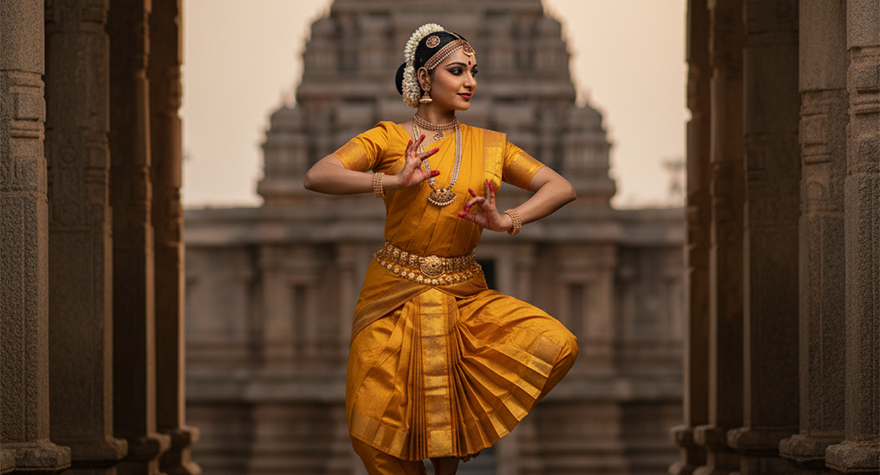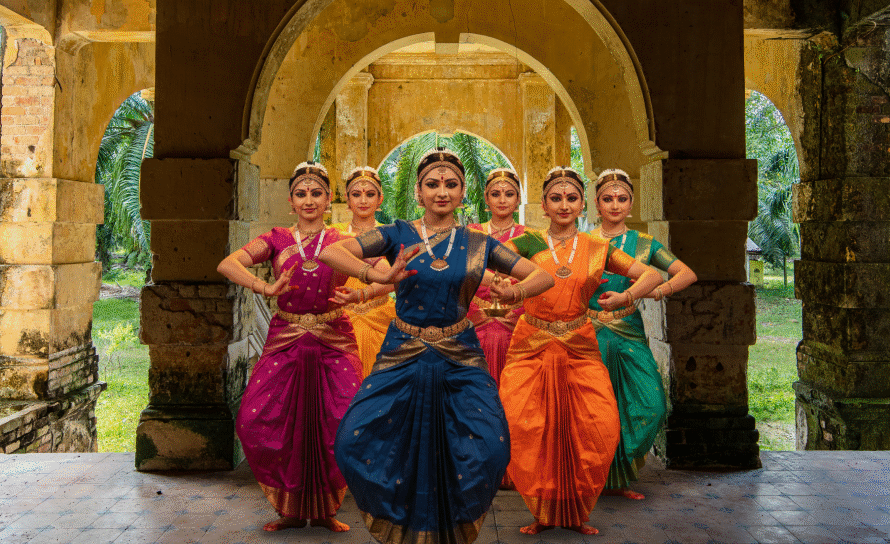Classical dance classes focus on discipline and structure, but workshops bring something more introduction, imagination, and inspiration. For classical dancers, workshops are not short-term activities, they mark the beginning of holistic growth as performers and artists.
What Makes Workshops Different from Normal Classes?
Workshops are experiential and hands-on, focusing on a single topic, technique, or style. Students often learn directly from guest faculty or master guru making it a truly unique and inspiring experience
Transformative Power of Dance Workshops for Students
Dance workshops play a vital role in shaping a student’s artistic journey. They help students refine posture, rhythm, and precision, ensuring technical expertise. Even minor corrections learned during a session can significantly enhance performance quality. Classical Dance is more abhinaya and less movement, and workshops introduce new choreography and narration techniques that challenge creativity and encourage higher imagination. Peer and mentor interaction during workshops enhances stage presence and confidence, allowing most students to realize their inner potential when pushed beyond their limits. Moreover, workshops provide an opportunity to interact with other students and professional artists, fostering personal growth and building strong bonds within the classical dance community.
Effect of Workshops on Training in Classical Dance
Workshops serve as a bridge between theory and practice in classical dance training. They not only help students perfect their dance techniques but also deepen their understanding of the philosophy, history, and cultural roots behind the art form. This holistic learning experience ensures long-term development, allowing dancers to evolve into well-rounded artists with a strong foundation in both performance and knowledge.
How Often to Attend Workshops?
Newcomers should enroll in classes once a year or every two years to receive orientation and a foundational understanding. If mid-level students wish to refine and master their skills, they should participate two or three times a year. Professional dancers, on the other hand, are required to regularly attend in order to stay up to date with the latest techniques, styles, and informative material, which ensures that their performances are engaging and fascinating.
Why Classical Dance Students Should Attend Workshops

Workshop provides students the freedom from the formulaic manner of learning. They are able to improve their technique, learn new ideas, and view things more clearly. Above all, workshops provide instruction on discipline, imagination, and belief in oneself, something any classical dancer needs.
Conclusion
Classical dance workshops are not optional; they are essential for every dedicated student who wishes to progress. By blending traditional methods with contemporary insights, workshops transform dancers into confident, expressive, and professional artists.
At Nrityangana, we believe that workshops are the heartbeat of learning. They honor tradition while inspiring dancers to reinterpret classical forms for the modern stage. Whether you are a new learner or a seasoned performer, your next workshop could be the turning point that elevates your dance journey.
FAQ's
What do students learn from classical dance workshops?
They learn technical correctness, expressive storytelling, stage presence, and sensitivity to culture.
Are workshops better than classes for dancers?
Workshops never substitute classes but supplement them. They offer intense, specialized learning apart from regular training.
In what ways do workshops assist a dancer to excel in the long term?
They provide room for innovation, retool technique skills, and prepare students for performance and competitions.


